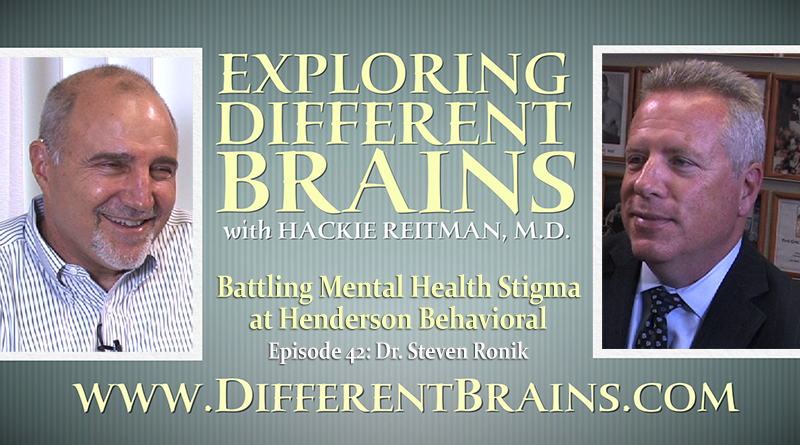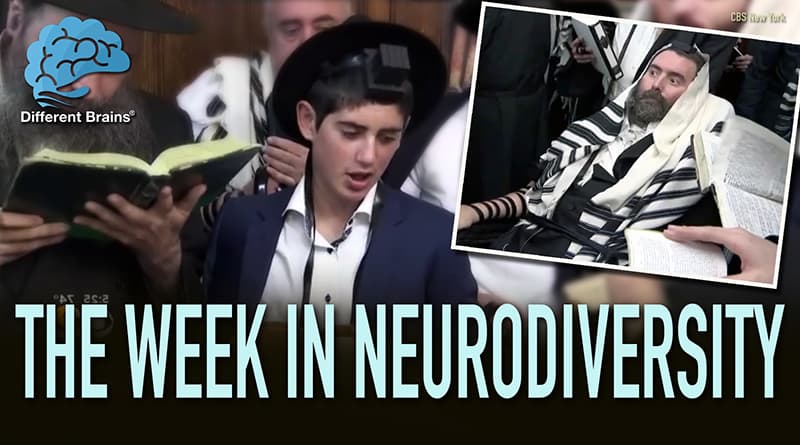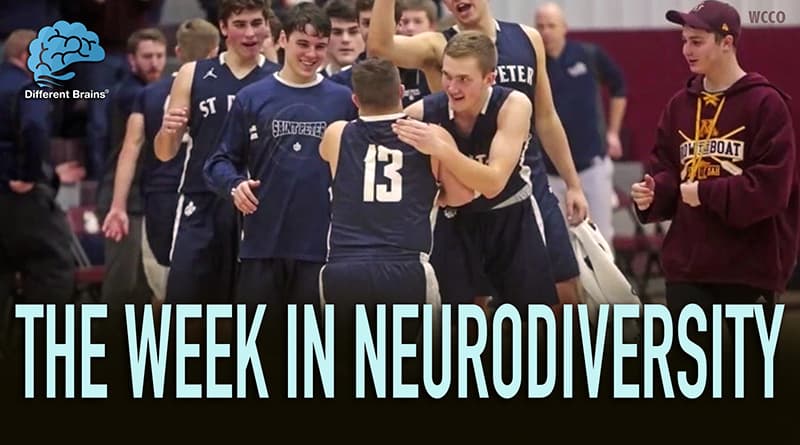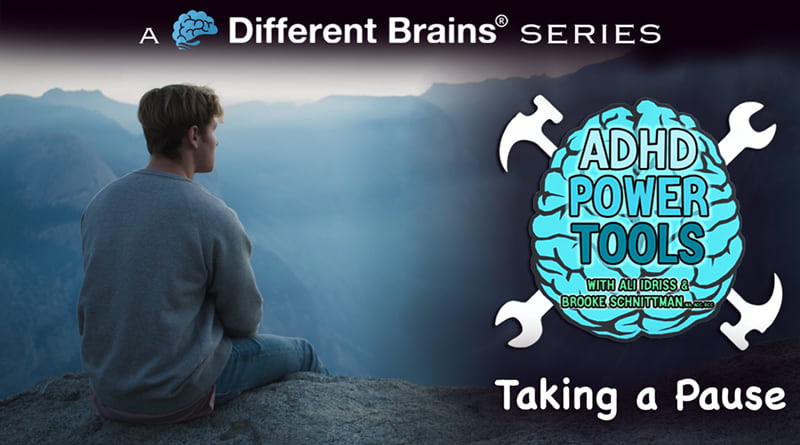
Battling Mental Health Stigma at Henderson Behavioral, with Dr. Steven Ronik | EDB 42
In this episode, Dr. Hackie Reitman sits down with Dr. Steven Ronik, the CEO of Henderson Behavioral Health. Henderson is the largest provider of health care support in South Florida, serving 30,000 people. Dr. Ronik discusses his journey from clinician to CEO, his thoughts on neurodiversity in the world of treating mental health, and the problem of stigmatization of those with different brains.
For more about Dr. Ronik and Henderson Behavioral Health, visit: www.hendersonbh.org
35 Second Preview:
To listen or download the podcast version of this episode, see the embedded player below.
Or look for us on your favorite podcast provider:
iTunes | Stitcher | SoundCloud
[expand title=”View Full Transcript”]
HACKIE REITMAN, M.D. (HR):
Hi, I’m Dr. Hackie Reitman, welcome to another episode of Exploring Different Brains. Today we have the privilege of talking to the CEO of Henderson Mental Behavior, which is the largest in south Florida. They’re serving 30,000 people. Dr. Steve Ronik. Steve, welcome!
- STEVEN RONIK (SR):
Thank you.
HR:
And thanks for being here today.
SR:
Okay.
HR:
So now you guys, from what I understand, are kind of the biggest in the room here. You’re not-for-profit, you serve 30,000 people who would be up the creek without you. Tell us more about Henderson Behavioral.
SR:
Henderson Behavioral Health is essentially the oldest and largest non-profit behavioral healthcare system in south Florida region. Last year we helped about 30,000 different people. We’ve been around forever–over 60 years. We serve people all over Broward County. Some in Palm Beach County, some in the Treasure Coast and Okeechobee County too. And we help a lot of folks who are disadvantaged, folks who are otherwise disenfranchised, who are a safety-net provider, but more and more we also help people all over and of all socio-economic backgrounds. And we provide the full range of behavioral healthcare services. For kids, even very young kids below the age of five, all the way up to older adults. And then in terms of level of care, everything from prevention all the way to our deepest-end service, which would be an inpatient Baker Act receiving facility.
HR:
So you’ve had quite a journey from clinician to CEO. Tell us about that journey and tell us about the differences.
SR:
Yeah, I mean there’s a lot of differences. I went to the field to help people. I went into the field to be a clinician. In the back of my mind, though, I was a pretty ambitious guy, and I wanted to make change on a big level. Now that was also something I wanted to do. But at the same time, I was very committed to being a clinician, because even after I got my initial graduate degree and got licensed to practice, and I went to school for three more years to do training in psychotherapy, beyond my master’s degree, and I don’t even think I was ever a good clinician, you know? I worked really hard. I mean I was super dedicated. I was super productive. I would do anything on behalf of my patients, but I don’t think it came easy to me. You’ve got to be a great listener, you have to be super patient, you have to be able to tolerate process, you have to have a minimal degree of anxiety–and I probably don’t meet any of those criteria. Right?
So I think I helped a lot of people, but it came hard for me, even though I was very well-trained. But I was very good at teaching, and I had a lot of ideas about how to do things on a system level. That didn’t come as hard for me, you know? I’ve always kind of had leadership roles. Even in college, I was involved in kind of leadership activities. So I started to take on more leadership roles, I liked it pretty much right away. I felt very fulfilled as a clinician. I worried a lot about my patients. I feel very fulfilled in a leadership role as a CEO. I worry a lot still. So, you know, I think neither one is better than the other, you know, I have an incredible respect and admiration for people who are dedicated, gifted and committed clinical practitioners, and when I see leaders who are great, I think that’s amazing too. So I’m fulfilled both ways. I’m glad I went the way that I went. I feel like I can make a bigger difference now and I think that’s important to me. I didn’t want to keep my ideas bottled up. I worked in a large hospital system, and that’s one of the reasons I came to Henderson.
I worked in a large hospital system for 10 years and I got promoted into middle-management as a young guy, but the way the hospital was set up at the time–and things have changed–I couldn’t have more of a position of influence unless I was a physician. That’s the way the hospital was organized at the time. So that was a little frustrating for me, even though I was only in my 20s and probably in too big of a rush. That’s changed now, interestingly enough. Now, if I had stayed there, these hospitals have non-physician healthcare professionals also in significant leadership roles, which, I think, is good, you know? Because there’s a lot of ways to be a leader, right? There’s probably not one degree that has the market on that, right? Probably becomes more about the person than the credential. That doesn’t mean you shouldn’t be trained. You do need to be trained. So, you know, I feel very grateful for the different jobs I’ve had along the way.
HR:
You know, I was reading about the history–the history of your organization, back to 1947, I believe–
SR:
’53. But it’s a long time.
HR:
And I was born in 1950, that’s getting scary. Can you tell us a little bit about the history and some of your board members and–
SR:
Sure. Henderson has been around over 60 years. We were founded in 1953. The organization was actually founded by the Junior League of Greater Fort Lauderdale and Henderson started in the 50s and continued through the 60s and 70s–even the 80s, as a relatively small outpatient mental health clinic. And, candidly, it took the organization and its leadership back then awhile to catch on that they could do much more–that they have to treat people with more serious mental health conditions too. Right? They have to take cases that have higher risk. You know, it’s like you can’t have one foot in bed and one foot out. You’ve got to be all in. So, by the early ’90s, the organization went all in, and understood that they have a commitment to the community as a whole and should be a community problem solver, and should treat everybody.
And especially people who have more complex mental health conditions. And then, from the ’90s through now, there’s been a lot of growth. You know, in the late ’90s, Henderson had about 150 staff members. Now we have almost 700 and provide services not just in Broward County but, look at south Florida as a region, which it is. People move around and we do, still, the predominant amount of services in our town here of Broward County, the greater Fort Lauderdale area. But we also have a big commitment to Palm Beach County now. I have offices up there and serve thousands of people in the Palm Beach county area, which is a big geographic reason, and also the Treasure Coast, all the counties that comprise that, and Okeechobee County. So we’ve been pretty busy.
HR:
I would say so. Tell us about some of your board of director’s members.
SR:
Yeah, so the leader of our board of directors is Dick Kenzer, he’s a great guy, he’s been our board chair for the last few years. He is a banker by profession and comes to Henderson in a leadership position, only because he cares about what we do–which is what you want from board members, right? You want people who are going to be ambassadors and champions for the cause. That’s the reason they should be there. And we’ve been blessed, we’ve been fortunate that we have a group of, usually between 15 and 20 board members who are there for the right reasons–people like Dick, people like Jacques Gunlock, people like Bob Field, people like Carolyn Lee who have been committed to our organization for a long time. So were proud of that.
HR:
Now what would you say is the biggest challenge you have? I imagine funding is right up there.
SR:
Right, right. So we have a lot of challenges in Florida. I mean, you know, what we try to say at Henderson is we try to do great thing in spite of inadequate resources and I think we do that. Florida is not a state that’s terribly committed to behavioral healthcare in general. The per capita state spending on mental healthcare in Florida is the last in the nation, were 50th out of 50 states. So it’s certainly nothing to be proud of. Rates are very low, Medicaid was not expanded in Florida, so you still have a lot of uninsured people. So supply & demand is the biggest problem. Essentially we know just what to do to treat any mental health condition successfully. We just need to have enough resources to solve a problem. For people who have insurance, they’re in good shape, right? But you still have hundreds of thousands of Floridians who don’t have health insurance. And we have some funding to address that, but not enough.
HR:
What is the biggest single thing about what you do that would surprise our viewers?
SR:
Well, I mean there’s a lot of things we do, You mentioned technology before. I just wanted to touch on that, because technology will extend the ability of healthcare systems to do more, and that’s something that we have invested quite a bit in. We provide some tele-health services now, where we do counseling and treatment through video displays and sound. We do it, right now, mostly with our college students, because we operate the student council centers for Nova Southeastern University, Broward College, and we do it for the medical school at the University of Miami, specifically the Palm Beach campus, and for some of those students, particularly Nova South Eastern, that’s what we’re using it for now, we use tele-health so we can help some of their students who are in Orlando, Tampa, Fort Meyers, Jacksonville, even Puerto Rico now. So that’s extended what we do to some degree, but I think what one of the biggest surprises would be for the general community is its misunderstood around the science that underlies mental health treatment. Sometimes there’s stigma, not just about people who have mental health conditions, but even a stigma toward the profession in general. Mental health professionals are very regulated. More regulated and monitored and audited almost than any other division in healthcare, which, if you think about it, it probably has something to do with folks not believing in it enough. So a lot of people don’t understand that mental health conditions are brain diseases; they’re treatable, treatment works really well, mood disorders, major depression, for example, when people get that treated the right way, it gets better about 80-85% of the time. People who are treated for heart conditions, it’s about 50% recovery rate. So mental health treatment is super effective, and I think that’s one of the things that, unfortunately, people don’t understand well enough.
HR:
You know, we were speaking–we had the privilege to interview Dr. Bankole Johnson who was featured in the HBO Documentary Addiction, and we were talking about addiction, but he kind of sees it like me, that all of these entities that effect the wiring in your brain, really, when you get down to it, are kind of similar. So he’s now at the University of Maryland where they’ve put everything under one roof, so-to-speak.
SR:
It should be under one roof. Mental health and addictions.
HR:
You’re the CEO of one of the biggest not-for-profit behavioral health systems on the planet, and especially here in south Florida. Tell us our thoughts on Different Brains or neurodiversity.
SR:
Yeah, I think, you know, one thing that people have to be respectful of and tolerant around is differences among people. And we even talk about psychopathology or mental health conditions that way to some degree. Sometimes, we try to train young clinicians that they should look at mental health conditions, even though they might be distinct entities, you know, a mood disorder from schizophrenia, from an anxiety disorder for example, once you’re in that range, it’s kind of a continuity, or a scale. So somebody might, for example, meet the diagnostic criteria for obsessive compulsive disorder where they have these terrible rituals and habits they have to do, right? Checking, counting, all kinds of rituals that can interfere. And if it gets so bad, right, it can slow them down, it can’t get them out of the house, so it could really be debilitating, right, and disabling, but then, you have folks, right, who have traits like that but on a lesser degree. They’re anxious, they check, did I close the garage door, they drive back check again. It doesn’t really get in the way of their lives, but if you can kind of appreciate degradation, if you will, or that sometimes degrees of mental health conditions, it can make you more sensitive. So, I think one of the things that people have to understand is that everyone’s brain is different, you know, we’re all wired a little bit differently, and you have to have respect for the fact that everyone might see the world a little differently.
HR:
Does Henderson Health–when you say Henderson Behavioral Health, what does Behavioral Health include? Like where do you draw the line in your organization?
SR:
Right, right. So in our organization, behavioral health can be a little confusing for people. So a lot of the times I’ll just try to use more simple language that’s more meaningful, which is essentially mental health disorders and addiction disorders. That’s essentially what we treat at Henderson.
HR:
That’s mental health disorders and–
SR:
And addiction disorders. Now, at Henderson, we treat mostly mental health conditions. But, with that said, over 50% of the people who come to us with a mental health condition, have a co-occurring addictive disease as well. So you’ve got to treat both orders simultaneously. You can’t tell people, lets fix one, then well get to the other. That’s not what people need or want. You’ve got to treat the whole person and you’ve got to treat everything at the same time.
HR:
See, what Steve Ronik, the CEO of Henderson Behavioral Health, just said, is so important, because none of this stuff–whether you talk about neurological, whether you talk about behavior, whether you talk about mental, intellectual disabilities, developmental disabilities–none of them occur in isolation. There’s always co-morbidities if you want to use a fancy word. But, for instance, the first chapter in the Aspertools book is on anxiety because that effects all of the above. And then, another key word that Steve Ronik used: stigma. We’ve got to remove the stigma from this. I want the president of the United States to wear a T-shirt that says my brain is different. What are some of the ways we can help get rid of the stigma of mental health?
SR:
Yeah, I think one of the most important ways is for people just to get the information out. And relative to stigma, it is better now. Especially with young people. I mean, we find that adolescents and young adults–millennials in general–are much less uptight about seeking mental health care and about letting their friends know they get mental healthcare. So I don’t think stigma will eventually disappear. Young people, in general, not everyone–but in general, have a very different outlook around mental healthcare. They see it as a priority. It’s also important that high-profile people in the community–people who are well-known who have mental health conditions and have family members who have mental health conditions–that they tell people. That they talk about it just like if they had cancer or diabetes or any physical healthcare condition. All of those things together help. But I do thing stigma is a lot better now than it was even 10 years ago.
HR:
Well, that’s great. That’s very encouraging and positive to hear. When we talk about entities such as Asperger’s and autism, I make the analogy that it’s kind of like being gay 50 years ago–you want to stay in the closet, you know? And we graduated, last year, three Aspie interns and they’re all doing great, they’re all in college and not one of them is going to ask for the accommodations that would make their life so much easier because they don’t wanna get stigmatized, and it’s a shame.
SR:
Yeah, well, what happens is, you know, what recovery is about, where you get to the point, you see, you should–it is a shame. People shouldn’t be ashamed that they have any condition–Asperger’s included, especially. Any autism spectrum-related disorder. First of all, they’re super common, right? Just like mental health conditions are super common; 1 in 5 Americans at any given time has a mental health condition. So that is a shame. And folks sometimes do need accommodations, and they should get accommodations, and hopefully, over time, there will be less stigma around that.
SR:
To us, the ideal is to get them to where their condition is incidental–where it doesn’t define them. Right? They might happen to have diabetes, they might happen to have Asperger’s, they might happen to have schizophrenia, whatever it might be–right, you don’t want them to be defined by their condition, it’s something they have, its incidental to who they are as a person. Not the defining feature, not that they don’t accept that they have it, but people have a life beyond what their condition is. Not to be completely identified by your condition and when you are identified by your condition, and people call folks, diabetics, or schizophrenics–even how we use language can matter sometimes. You’re defining people by their condition, and that’s not good for that–or for anybody.
HR:
Well all of us here at DifferentBrains.com look forward to working with Henderson to help you achieve your worthy goals, not that you need any help, but–
SR:
We need all of the help we can get.
HR:
You’re doing great, great things here. We’ve been speaking today with Dr. Steve Ronik, the CEO of Henderson Behavioral Health, which serves 30,000 people right here in Broward County, Florida, with their 700 wonderful staff, and this has been a very educational episode of Exploring Different Brains.
[/expand]
This video is owned by Different Brains Inc, kindly donated by it’s original producer PCE Media LLC.
Different Brains® Inc. founder Harold “Hackie” Reitman, M.D. is an author, filmmaker, retired orthopedic surgeon, former professional heavyweight boxer, the past chairman and president (and current board member) of The Boys and Girls Clubs of Broward County, and a neurodiversity advocate. However, it was his role as a father that led to the creation of the DifferentBrains.org website.
Hackie’s daughter Rebecca grew up with epilepsy, 23 vascular brains tumors, and underwent 2 brain surgeries before the age of 5. Her struggles and recovery put him on the road to, through 26 professional heavyweight boxing matches, raising money for children’s charities (to which he donated every fight purse).
Rebecca eventually went on to graduate from Georgia Tech with a degree in Discrete Mathematics, and Dr. Reitman wrote and produced a film based on her experiences there (The Square Root of 2, starring Darby Stanchfield of ABC’s Scandal). After graduation, Rebecca received a diagnosis of Asperger’s syndrome. Hackie, shocked at his own ignorance of the topic despite being an M.D., embarked on years of research that culminated with his book Aspertools: The Practical Guide for Understanding and Embracing Asperger’s, Autism Spectrum Disorders, and Neurodiversity (released by HCI books, publishers of the Chicken Soup for the Soul series).
This experience revealed to Hackie the interconnectedness of the conditions that fall under the neurodiversity umbrella, while alerting him to the in-fighting and fractured relations that often plague the organizations tasked with serving the community. Convinced that overcoming these schisms could help all of society, Hackie forged the Different Brains philosophy of inclusive advocacy: “Supporting Neurodiversity – From Autism to Alzheimer’s and All Brains In Between”.
In the company’s initial years of operation, Hackie self-financed all of the content on DifferentBrains.org, all of which offered free to view to the public. Currently he is the host of our weekly interview show Exploring Different Brains, writes blogs for the site, and tours the country speaking at conferences, conventions and private functions, all with the goal of improving the lives of neurodiverse individuals and their families, and maximizing the potential of those with different brains. Separate from Different Brains, Hackie is the founder and CEO of PCE Media, a media production company focusing on reality based content. He recently co-executive produced the documentary “Foreman”, the definitive feature documentary on legendary boxer and pitchman George Foreman.




